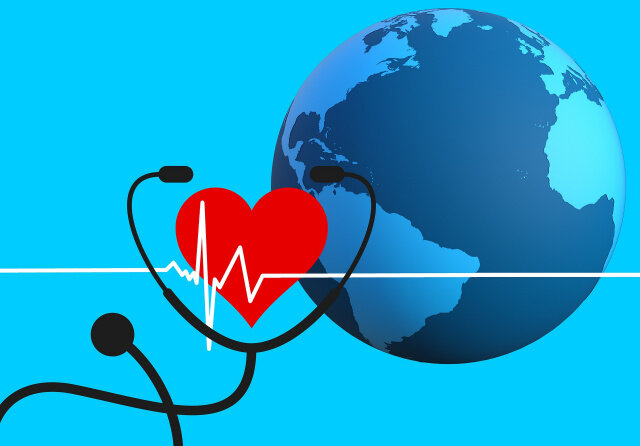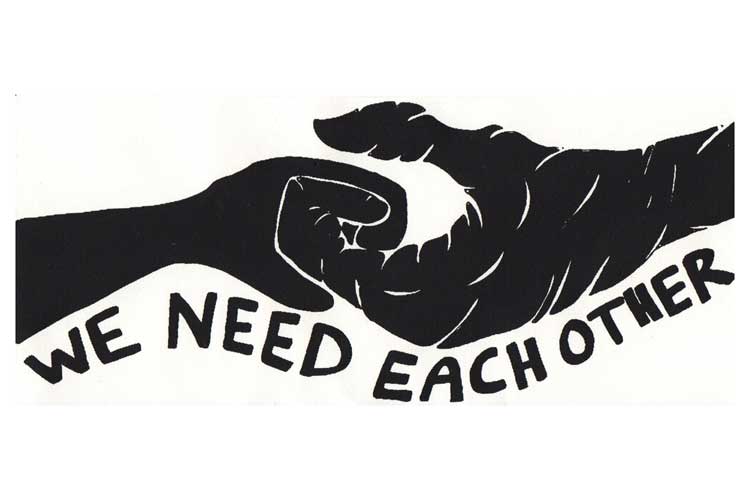Clinical Consultant & Psychotherapist, Chula Goonewardene discusses the effects of COVID-19 on the music industry, the mobilisation of online support networks and more.
My specialism is providing Counselling & Psychotherapy to clients with addictive disorders, in particular; those within the music industry, due to my history of addiction/recovery and my previous career as a musician.
In the addiction treatment field, we have long understood the systemic aspect of the illness that often manifests in relational dysfunction and intimacy avoidance. Oftentimes, addictive behaviour is initially a coping mechanism, employed to overcome trauma experience(s) and this inevitably effects our closest relationships in a myriad of ways.
But it is also very common in the treating of addicted individuals, to find that it is actually the dynamic of primary-carer relationships that hold the points of origin for addictive responses to trauma, and these dynamics can also be at the root of the difficulties people find themselves in, with music industry-related problems, such as; stress management, emotional containment, touring/performance fatigue, identity crisis, creativity paralysis, and work-addiction.
Put simply, the result of poor parenting practices, ranging with substantial variety, from temporary emotional absence to severe child abuse and violence, can often set up an individual to be poorly equipped to self-regulate difficult emotions and therefore seek external ways in which to achieve this, in the form of behaviours that can lead to mind-altering, mood-altering, or process addictions…and even addictive patterns of behaviour within creative pursuits, such as being a musician, crew member or a producer, etc., that facilitate an escape from reality, into an artistic world.
Alongside this, I have found in myself and the music industry clients that I treat for addiction, what we understand to be core characteristics of the underlying condition, that one might use to define ‘dry drunk syndrome’ and will often occur if addicts in recovery who do not engage with a long-term therapeutic programme that supports their psychological and emotional needs once abstinent/on a bottom-line.
The relevance of this in the current COVID-19 situation hinges upon the fact that our forced isolation, loss of work for crew members/record company employees/artists and musicians, and the accompanying drastic lifestyle changes, push us; not only into a place of significantly limited access to our usual support networks and familiar working environments and patterns, but very likely; into increased proximity to partners and family members which creates an amplification of all the interpersonal systemic dynamics.

What I am seeing in almost all of my clients, addicts and non-addicts, is that the underlying issues grown from difficult or dysfunctional maternal and/or paternal dynamics, are being exacerbated by our current situation and manifesting in various forms, most usually as; transference projections onto those they are living with, heightened negative projection and catastrophising, disproportionate responses and reactions, and/or a clamouring for safety and security, especially where finances are threatened.
My therapeutic work with music industry clients pre-COVID-19 often found a mirroring of these processes when people came off-tour, and supports the notion that the escapist bubble that touring provides, can mask the more difficult elements of the human condition, as I think we are all now having our existential angst and unconscious material being triggered by this most unusual set of circumstances.
It is imperative that we do not underestimate the power of this to create schism in our families, communities and society, as our usual comfort blankets get taken away, and we are forced to adapt to the consequences of a tyrannical viral pandemic.
One thing that remains constant however; before, during and after COVID-19, is that communication, connection, loving kindness and support, provide much of the solution to us coping with this global crisis on an interpersonal level, and alongside what I have described above, I have also witnessed my music industry clients extending compassion to those around them, due to the delicate nature of their closed environments and the heightened emotions that we mirror in each other, giving rise to undeniable empathy.
It has also warmed me to see the mobilisation of online support networks, such as the UK Touring Crew and UK Live Event Freelancers Facebook groups, the 12 Step fellowships, and the general offering of health and well-being support, such as; therapy, training, yoga, etc. for little or no cost.
This mutual aid is vital for us now, as it will enable everyone to nurture themselves and each other, so that we can all survive this tragedy, with our minds, our hearts, our relationships and our careers; solid, intact and flourishing.
